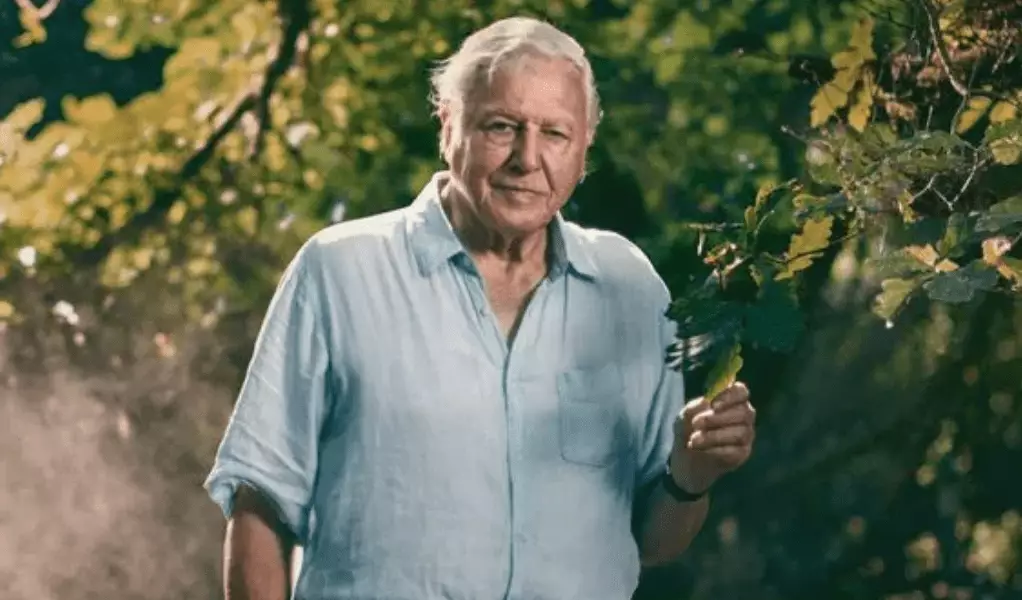In an age of rapid technological advancement, discussions surrounding artificial intelligence (AI) have intensified, particularly focusing on ethical boundaries. One of the most striking issues recently brought to public attention is the unauthorized cloning of voices, which has raised profound concerns among individuals directly affected by these developments. The situation involving David Attenborough, an esteemed natural historian and broadcaster, encapsulates the distressing ramifications of AI-generated voices. His experiences not only spotlight the potential implications for copyright and personal identity but also strike a chord regarding the integrity of artistic expression.
David Attenborough, known for his captivating storytelling and dedication to environmental conservation, expressed deep concern upon learning that his voice was being cloned without permission. The catalyst for this distress was a segment on BBC News that employed a voiceover of Attenborough taken from his series “Asia.” As he narrated, “If you think you’ve seen the best the natural world has to offer, think again. There is nowhere else on Earth with so many untold stories. Welcome then, to Asia,” unsuspecting viewers could not discern that the second iteration they heard was an AI-generated mimicry of his voice.
The almost indistinguishable nature of the original and cloned voices raised alarming questions about authenticity and ownership. It is alarming that within the span of just a few months, AI-generated replicas of Attenborough’s signature voice have infiltrated various platforms, often saturating contexts that he has no association with, such as commentary on geopolitical issues like the Russia-Ukraine war or controversial figures like Donald Trump.
Attenborough candidly articulated his feelings, stating, “Having spent a lifetime trying to speak what I believe to be the truth, I am profoundly disturbed to find these days my identity is being stolen by others and greatly object to them using it to say whatever they wish.” This powerful statement encapsulates not only his personal anguish but also raises broader questions about the implications of AI on individuality and ethical responsibility.
The situation escalated when the creators of the cloned content attempted to mitigate the confusion by emphasizing that their AI clone was not David Attenborough himself. They asserted that while their voices might share similarities, they were distinct entities. This raised critical discussions around the boundaries of imitation and the distinction between homage and appropriation.
The growing prevalence of such instances has ignited conversations about the need for legal frameworks that protect public figures from unauthorized likeness cloning. In the United States, resultant discourse led to the introduction of the No Fakes Act in August, a bill that emphasizes accountability for those who create clones without consent. This bipartisan act showcases a burgeoning recognition of the need to navigate the uncharted territories of digital representation and intellectual property in the AI era.
Furthermore, the challenges posed by AI-related ethical dilemmas were also highlighted during recent labor strikes involving writers and actors, where concerns surrounding the misuse of AI in entertainment were central. The case of Scarlett Johansson, who threatened legal action over the unauthorized use of an AI voice resembling hers, adds another layer of urgency to this debate. It clearly illustrates how creators are grappling with the intersection of technology, identity, and consent.
As technology continues its relentless march forward, the potential misuse of AI, particularly in applications such as voice cloning, calls for a proactive approach. The ethical considerations highlighted by figures like David Attenborough emphasize the need for dialogue surrounding the rights of individuals to protect their identities in an increasingly digital world.
The responsibility lies not only with those creating such technologies but also within legal systems that must evolve to safeguard the interests and identities of public figures and private individuals alike. Ultimately, as society navigates this digital transformation, a balance must be struck between technological innovation and the sanctity of personal identity and intellectual property. The future of AI should not overshadow the voices that deserve to be heard authentically; it should enhance them while securing respect for their uniqueness.

